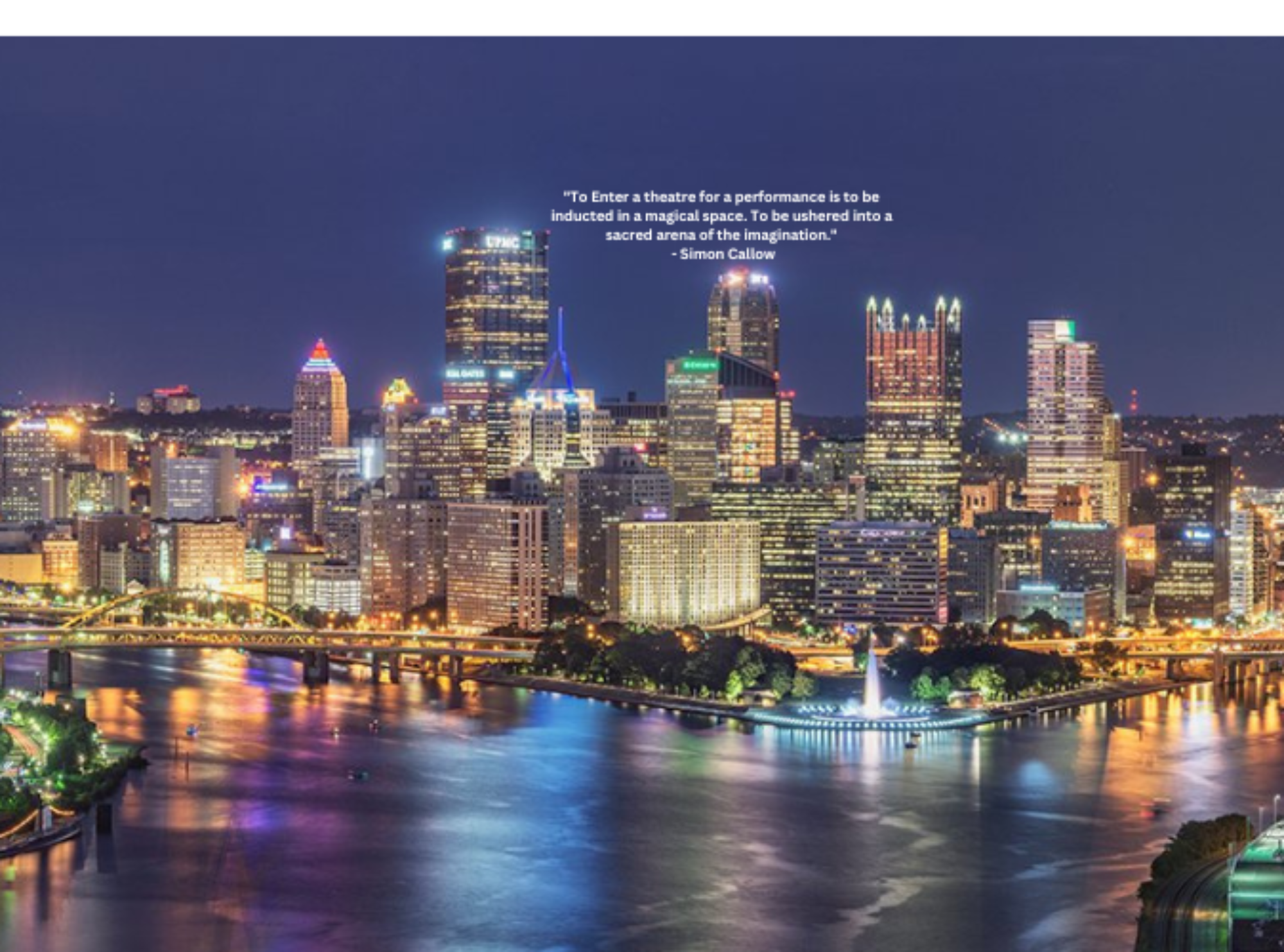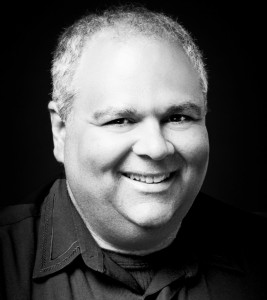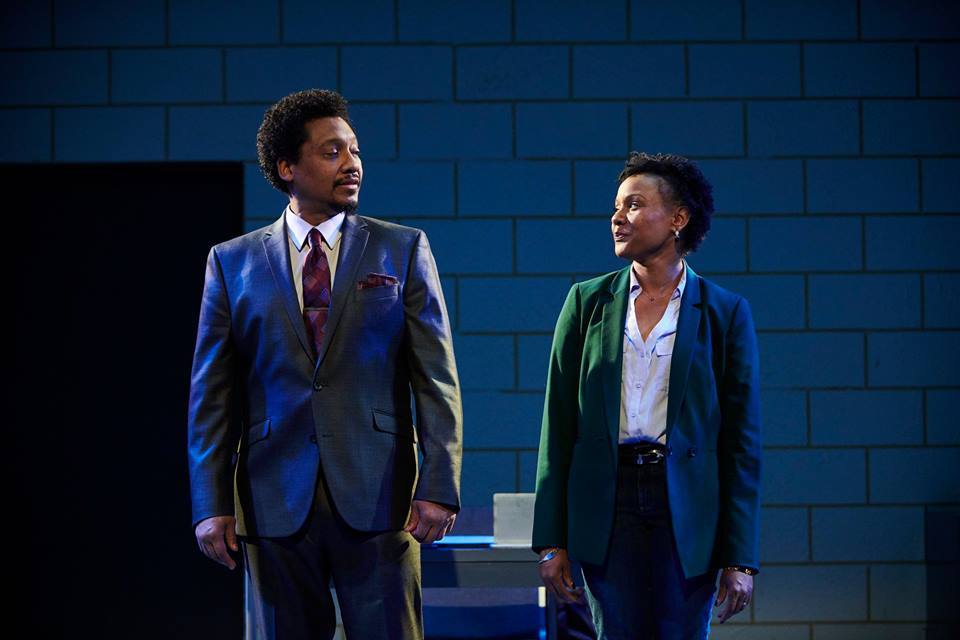By Michael “Buzz” Buzzelli, ‘Burgh Vivant.
When an iPhone captures Omari (Carter Redwood) lashing out against a teacher at his private school, his mother, Nya (Nambi E. Klley), must figure out how to save him from being expelled in Dominique Morisseau’s “Pipeline.”
Nya teaches in a troubled public school, but has sent her son off to a more reputable school, but now the incident weighs heavily on her. She tries very hard not to discuss it with her colleague Laurie (Sheila McKenna), a fellow teacher who is returning to work after a student slashed her face, and Dun (Gabriel Lawrence), a school security guard, who has a sordid history with Nya, but they learn of her son’s misfortune.
Meanwhile, Omari confides in his girlfriend, Jasmine (Krystal Rivera) about running away. Of course, Jasmine doesn’t want him to leave, but Omari feels like his options are limited.
William Woodsworth lamented against the Industrial Revolution way back in his 1802 poem “The World Is Too Much With Us.” Nowadays, the cell phone sees all. This tiny video recording device has become judge, jury and executioner. The world is, indeed, too much with us.
While shoving a teacher is a violent act, there are extenuating circumstances. Omari is a bright, talented boy with some anger issues, which seem to stem from his parent’s divorce. He is also facing a mountain of racism from his teachers and classmates at his mostly white private school.
His father, Xavier (Khalil Kain), wants to throw money at the problem; unaware that the issue could be solved with love and tenderness and not cold, hard cash.
Nya is emotionally crippled from trying to fix her son’s problem. She keeps coming back to
Gwendolyn Brook’s poem, “The Pool Players – Seven at the Golden Shovel.”
The words of the poem flash around her (thanks to Adam J. Thompson’s video design), “We real cool. We left school. We lurk late. We strike straight. We sing sin. We thin gin. We jazz June. We die soon.”
She fears her son is lost in the system. She can’t help but believe he’s headed to a disastrous outcome, like the seven pool players at the Golden Shovel.
With police shootings and rampant racism on the news every single day, it’s hard not to sympathize with Nya’s plight.
The world is too much with us.
Xavier (Khalil Kain) and and Nya (Nambi E. Kelley) discuss their son’s fate. Photo credit: Kristi Jan HooverDominque Morisseau’s play is brought to life with the aid of some incredible talent, guided along by Reginald L. Douglas.
Redwood is stunning as Omari. He is charismatic and real cool and definitely did not leave school. He is a returning Pittsburgh native who graduated from Carnegie Mellon University and has gone on to be seen on television in “Blue Bloods,” “The Good Wife,” “Rise” and more.
There is a brilliant father and son scene between Redwood’s Omari and Kain’s Xavier. Redwood is heartfelt and emotional, while Kain is cold and distant. The father demands respect instead of asking for love or forgiveness. It’s a beautiful yet sad treatise on the father/son dynamic.
While McKenna provides some of the heartiest laughs in the show, she gets to sink her teeth into her part later in the show in an argument with Lawrence’s Dunn. It’s another powerful moment in a play with a lot of powerful moments.
Rivera gets some great lines, too, and she executes them brilliantly. There is some hip, contemporary music from Jasiri X and the artists over at 1Hood Media.
The biggest star on the stage is the stage itself. Tony Ferrieri’s set rotates like a rotisserie chicken, allowing for multiple set changes to take place unseen. It’s the perfect design for a show with multiple scene changes. Coupled with Adam J. Thompson’s video design and Andrew David Ostrowski’s lighting design, the most basic elements of theatre become magical.
The title comes from schools with zero-tolerance policies that have been blatantly racist and have criminalized African American kids, instead of nurturing them in the school system. There are some difficult moments in the show for any parent struggling to raise their children where fear and hatred seem to lurk everywhere. The world is too much with us.
Luckily, Morisseau doesn’t give us a pat, happy ending, but she does leave us with hope for the future.
City Theatre has been doing some amazing new theater, with themes of sex, gender, and race, and it’s just the sort of art we need right now.
– MB
You can find “Pipeline” at the City Theatre, 1300 Bingham Street, Pittsburgh, PA 15203. For more information, click here.



